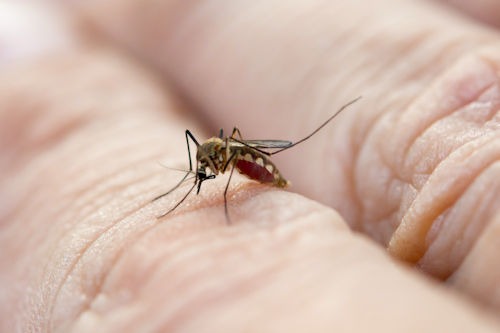When the evening comes, bringing with it the soft hum of mosquitoes, a certain unease often follows. These tiny creatures, often dismissed as mere annoyances, are in fact carriers of some of the world’s most dangerous diseases. In this article, we’ll take a closer look at the significant health risks associated with mosquito-borne diseases, emphasizing the need for greater disease awareness and sharing essential prevention tips to keep these tiny foes at bay.
The Hidden Dangers of Mosquitoes
It’s a simple fact, often overlooked in the rush of daily life, that mosquitoes are more than just pests. They are vectors for a host of serious illnesses. Mosquito-borne diseases such as Malaria, Dengue, Zika, and West Nile Virus have plagued humanity for centuries. Despite modern advances in medicine and technology, these diseases continue to pose a significant threat to global health.
Understanding Mosquito-Borne Diseases
At the heart of the matter, mosquito-borne diseases are primarily spread when an infected mosquito bites a human. The danger lies not just in the bite but in the pathogens these mosquitoes carry. For instance, the female Anopheles mosquito, a silent carrier of Malaria, has been a scourge throughout human history. Similarly, the Aedes mosquitoes, known for their distinctive black and white markings, are responsible for spreading Dengue and Zika viruses.
The Impact on Health
The impact of these diseases on human health can be severe. Malaria, for instance, causes symptoms that include fever, chills, and flu-like illness, and can lead to severe complications and death if not treated promptly. Dengue, often called ‘breakbone fever’, causes severe joint and muscle pain, skin rashes, and fever. Zika virus, a relatively new threat, has been linked to birth defects in babies born to infected mothers.
Prevention Tips: Your Shield Against These Diseases
Prevention is undoubtedly better than cure, especially when dealing with mosquito-borne diseases. Here are some practical tips to protect yourself and your loved ones:
- Use Mosquito Repellent: Apply insect repellent that contains DEET, Picaridin, or oil of lemon eucalyptus.
- Wear Protective Clothing: When outdoors, wear long-sleeved shirts and long pants.
- Keep Mosquitoes Outside: Use window and door screens to prevent mosquitoes from entering your home.
- Eliminate Standing Water: Regularly empty and clean containers that hold water, such as buckets, flower pots, and bird baths, as these are breeding grounds for mosquitoes.
Spreading Awareness: A Collective Responsibility
Raising awareness about mosquito-borne diseases is crucial. Communities must be educated about the risks and the steps that can be taken to minimize them. Health campaigns, community clean-up drives to eliminate mosquito breeding sites, and educational programs in schools can go a long way in preventing the spread of these diseases.
Conclusion: A Call to Action
Mosquito-borne diseases remain a significant threat to global health, but with increased awareness and proactive prevention measures, we can reduce their impact. It is our collective responsibility to take action and safeguard ourselves and our communities from these tiny, yet formidable foes. Remember, a little effort in prevention can spare us and our loved ones from facing big problems.
In crafting this article, we’ve journeyed through the perilous landscape of mosquito-borne diseases, understanding their health risks, and arming ourselves with the knowledge to prevent them. It’s a reminder of the power held by these tiny creatures and the importance of staying vigilant in our fight against them.

